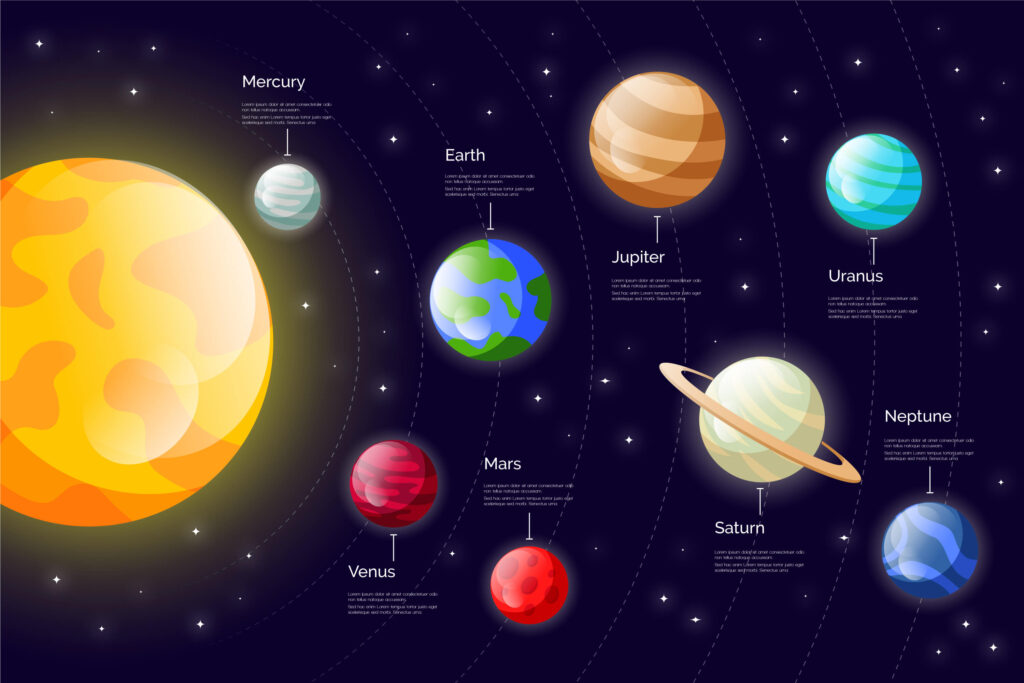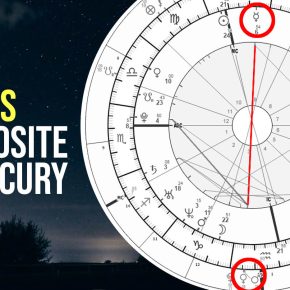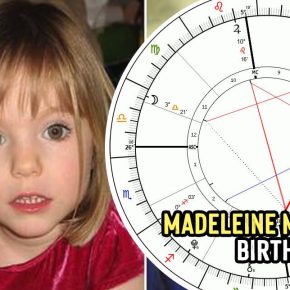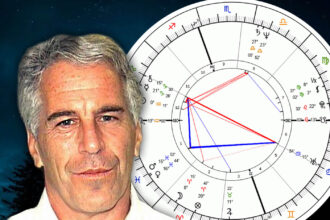Astrology transits are moments when a planet in the sky forms an angle to a planet or point in your birth chart. But some transits hit like a storm, while others feel like nothing at all. The timing, intensity, and even whether you notice them depends on a few things: how fast the planet moves, whether it’s retrograde, what part of your chart it touches, and whether the aspect is building or fading.
The Moment It Hits the Hardest: Applying, Exact, Separating
A transit is usually felt the most when the planet is applying aka. moving toward the exact degree. This is when energy builds like pressure. The exact degree is the peak. After that, the planet starts separating, and the energy slowly fades. You still feel it, but the climax has already passed.
Some planets will cross the same degree three times because of retrograde motion. These second passes, during retrograde, can actually feel stronger than the first. Why? Because they force you to revisit something you thought you already understood. Sometimes the healing or the crisis doesn’t happen on the first pass, but on the backward or final one.
Fast-Moving Planets: Quick, Loud, But Short-Lived
Mercury, Venus, and Mars move quickly, so their transits tend to be noticeable but brief.
- Mercury transits usually show up as thoughts, ideas, news, conversations, or increased mental activity. Mercury doesn’t create events… it reflects what’s already happening and gives it words or movement.
- Venus brings emotional shifts, attraction, money flow, comfort or discomfort in relationships. If Venus touches your Sun, Moon, Ascendant, or Descendant, you’ll feel it right away.
- Mars is physical energy, anger, motivation, tension, sex drive. Mars on a personal planet often brings restlessness, irritation, or the push to act. It can trigger arguments or accidents when uncontrolled. but also productivity when channeled.
These planets don’t linger. You feel them sharply, then they’re gone.
Jupiter and Saturn: Opportunity and Reality
Jupiter and Saturn move slower, so their effects last longer.
- Jupiter is expansion, but expansion isn’t always “good.” If you’re in a positive space, Jupiter grows it. If you’re anxious or stuck, Jupiter can magnify that too. Jupiter on Venus can bring love, money, or travel. But Jupiter on the Moon can make emotions overwhelming. You feel this transit right around the exact hit, optimism, excess, relief, or emotional overflow.
- Saturn takes time. It brings structure, responsibility, limitation, and maturity. You may not feel much on the first day Saturn touches a point in your chart, but within weeks or months, you start to notice pressure: needing a plan, more work, fears surfacing, or the sense that something must be taken seriously. Saturn retrogrades often bring the real lesson, what you avoided the first time.

Outer Planets: Slow, Life-Changing, and Often Delayed
Uranus, Neptune, and Pluto move very slowly. When they transit personal planets (Sun, Moon, Venus, Mars) or angles (Ascendant, Descendant, IC, MC), they mark entire chapters of life.
- Uranus is sudden change. Breakthroughs, disruptions, awakenings. You might feel restless or rebellious during the applying phase, and the exact hit often brings a sudden shift.
- Neptune is the opposite, soft, blurry, confusing. Its transits feel like fog rolling in. You don’t notice the change at first, you drift. Only later, when the transit pulls away, you realize how much your identity, beliefs, or dreams shifted.
- Pluto is the deepest. It transforms what it touches by stripping it down and rebuilding it. You rarely feel Pluto “arrive.” Instead, life slowly breaks down old structures, relationships, identity, career, and you rebuild. Sometimes the intensity is strongest when Pluto leaves the degree, as if you finally understand everything it was trying to change.
Retrogrades of these outer planets often reactivate old wounds or bring the “real” transformation.
Why Some Transits Hit Harder Than Others
You feel a transit more intensely when:
- It touches your Sun, Moon, Ascendant, Descendant, Midheaven, IC, or personal planets.
- It lands exactly on an angle or planet.
- It’s applying instead of separating.
- The transiting planet is retrograde or hitting the same degree for the second or third time.
- It triggers a natal aspect you already have in your birth chart (for example, you were born with Mars square Moon, and a transiting planet activates one of them).
You feel it less when:
- It’s between outer planets only (like Neptune trine Pluto, generational).
- It aspects a point that doesn’t tie into sensitive parts of your chart.
- The orb is too wide (more than 2°–3° for fast planets, 5°–6° for slow ones).
What About Houses and House Cusps?
When a planet enters a new house in your chart, the theme of that house becomes active. Even before it aspects anything, the area of life connected to that house starts shifting.
House cusps, the beginning of each house, are like energetic doors. When a planet crosses a cusp, something starts. A relationship, a job, a move, a change in self-image, depending on the house.
So… When Is a Transit the Most Powerful?
Not when you read about it in a horoscope. Not when it “begins” months early.
A transit is strongest when:
- The planet is moving toward exact degree (applying)
- It hits a personal planet or angle (Sun, Moon, ASC, MC, etc.)
- It’s within a tight orb
- And especially, when it’s retrograde and returning over the same point
Fast planets are loud but temporary. Saturn teaches through pressure. Uranus shocks. Neptune blurs. Pluto transforms you from the inside out.
And sometimes, you don’t understand a transit while it’s happening. You only understand it when it ends, when you realize you’re no longer the same person you were before.












